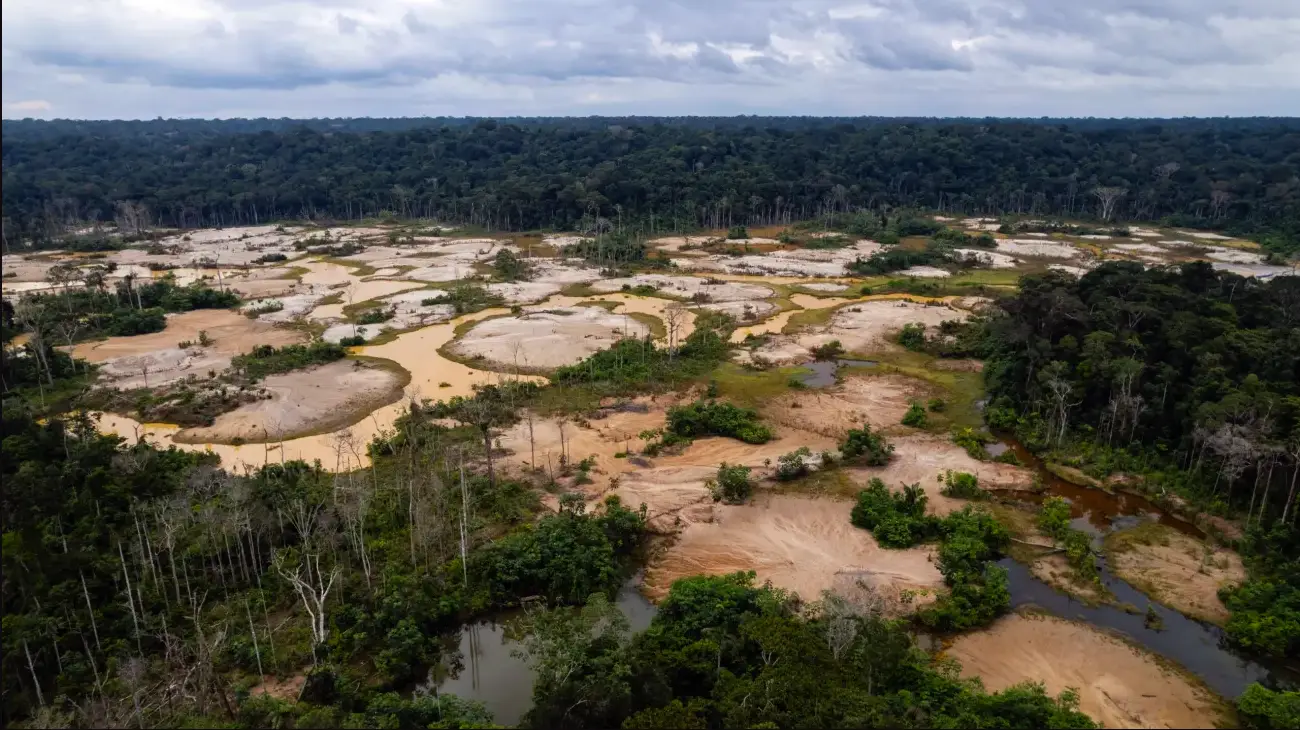Climate change is no longer a distant threat but a reality shaping the daily lives of everyone. In Latin America, fires in the Amazon, floods in Central America, and increasingly intense hurricanes in the Caribbean are clear signals of a worsening problem year after year, while Europe’s summer has recorded temperatures above 46°C in Spain and Portugal. By 2025, the Amazon has lost hundreds of thousands of hectares of forest, a vital ecosystem not only for the region but also for the planet’s climate balance. The degradation of this green lung highlights that we are facing a common resource whose destruction affects all of humanity.
The impacts of climate change are also distributed unequally. The most vulnerable populations are those who suffer the most, precisely because they lack adequate infrastructure, state support, or insurance to cope with disasters. In Mexico, rural communities lose entire harvests during prolonged droughts; in Peru, retreating glaciers jeopardize the water supply for millions; in Central America, storms erase years of investment in just hours. In this sense, climate change not only destroys ecosystems but also acts as an amplifier of inequality, deepening poverty and widening the gap between those with resources to adapt and those without.
Common resources and negative externalities
To understand these dynamics, it is useful to recall the concepts of common resources and externalities. The biosphere, which includes land, oceans, and the atmosphere, is perhaps the most important common resource on which human life depends. The problem arises when its use is unregulated: each actor acts in pursuit of immediate benefit, but the cost of destruction falls on society as a whole. This situation, described as “the tragedy of the commons,” can be seen dramatically in the Amazon, where illegal logging and agricultural expansion benefit a few in the short term, while environmental and social costs are borne by local communities, neighboring countries, and humanity at large.
Climate change can be understood as the greatest negative externality in history. Greenhouse gas emissions generated by companies and consumers are not reflected in the price of goods and services, distorting market efficiency. This disconnect between private benefit and social cost creates a structural failure: individual incentives lead to decisions that are collectively destructive. Thus, the intensive exploitation of natural resources in Bolivia or dependence on fossil fuels in Mexico and Venezuela not only affect those countries but also have regional and global impacts. Climate, biodiversity, and food security are compromised by decisions that rarely consider their real scope.
In this scenario, public intervention and institutional strength are indispensable. Common resources must be regulated to prevent deterioration, and externalities must be corrected through effective public policies. At the local level, municipalities play a key role in protecting parks, bodies of water, and natural areas. At the national level, governments are called on to impose environmental taxes, control deforestation, and promote incentives for clean energy. But climate change recognizes no borders, which is why international cooperation is essential. Instruments such as the 2030 Agenda or the Paris Agreement are not mere symbolic commitments: they represent the only path to coordinate efforts in a problem no country can solve alone.
Structural inequality
However, Latin America faces particular conditions that complicate this task. Economic inequality, labor informality, and corruption limit the ability of many governments to implement long-term environmental policies. In this context, economic justice becomes inseparable from climate action. It is not enough to talk about adaptation and mitigation without also addressing the repair of historical damages that have shaped the region, from land concentration to the exploitation of natural resources by transnational interests. Indigenous communities, often excluded from decision-making processes, have borne much of the environmental and social costs. Recognizing and repairing these injustices is an essential part of any serious climate strategy.
Despite the urgency, there are still voices that deny the severity of climate change or reject state intervention. These positions, common among conservative political sectors, not only disregard accumulated scientific evidence but also perpetuate a development model based on immediate benefits at the expense of the common good. Denying the negative externality of CO2 emissions or rejecting international agreements is equivalent to sustaining collective selfishness that endangers millions of lives and compromises the planet’s future.
Even so, there are encouraging experiences showing that change is possible. Costa Rica, for example, has managed to recover large tracts of forest thanks to conservation policies, economic incentives, and environmental education programs. In Chile, the push for renewable energies has transformed the energy matrix and opened opportunities for more sustainable growth. These cases demonstrate that with political will and sufficient resources, institutions can prevent the tragedy of the commons and turn negative externalities into opportunities for fair and equitable development.
The need for collective commitment
The challenge, however, requires thinking on a regional and global scale. The Amazon does not belong only to the countries it spans; its importance for the world’s climate demands collective commitment. Fires ravaging Brazil or Bolivia alter climate patterns affecting the entire continent. Similarly, the emissions of one country directly affect its neighbors. In this context, international cooperation cannot rely solely on diplomacy but must be based on principles of justice and equity that guarantee a fair distribution of the costs and benefits of climate action.
Ultimately, climate change acts as a mirror of our societies. It reflects inequality, concentration of power, and governance failures, problems that characterize many countries in our region. Addressing it means recognizing that common goods are not infinite and that negative externalities have real costs that can no longer be ignored. It also means accepting that economic justice and historical reparation are not secondary elements but central pillars of any serious environmental agenda.
Latin America today, more than ever, needs to strengthen its institutions, promote regional and global cooperation, and ensure public policies that integrate environmental costs into decision-making. A fair redistribution of benefits is key to ensuring no one is excluded from the right to a healthy environment. Denying this reality is not just a political mistake: it is an attack on our collective future. If the tragedy of the commons is not confronted with vision and solidarity, it risks becoming a tragedy for all humanity.
Climate change cannot be treated as a luxury or a philanthropic gesture. In Latin America, addressing it is a vital necessity to preserve life, reduce inequalities, and build a dignified future. The biosphere is a common good that requires collective action for its protection. Market failures and negative externalities are urgent realities, and economic justice is an inescapable condition to move toward resilient societies. Ignoring these lessons, or yielding to short-term interests, will only condemn us to repeat the tragedy of the commons on a global scale, with irreversible consequences for the planet and for future generations.
David Castells-Quintana is a professor at the Autonomous University of Barcelona. PhD in Economics from the University of Barcelona. Master in Development from the Barcelona Centre for International Affairs (CIDOB). Specialized in international and urban economics.
*Machine translation, proofread by Ricardo Aceves.













